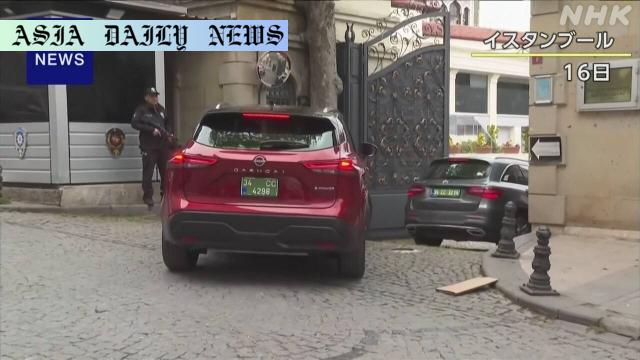Nuclear program updates as Iran meets with Britain, France, and Germany to address concerns and avoid sanctions.

Background of Iran’s Nuclear Program
The history of Iran’s nuclear program has been marred with global tensions and intense negotiations. In 2015, Iran signed the Joint Comprehensive Plan of Action (JCPOA), an agreement with major world powers, including Britain, France, Germany, and the United States. The deal aimed to limit Tehran’s nuclear development in exchange for sanctions relief. However, the dynamics changed when the United States, under the Trump administration, unilaterally withdrew from the agreement in 2018. This withdrawal led Iran to accelerate its nuclear program, raising concerns about possible violations of the deal and its implications for global security.
Recent Developments and Talks in Istanbul
In an attempt to address concerns, senior delegates from Iran, Britain, France, and Germany convened in Istanbul on Friday. The discussions focused on mitigating the risks surrounding Iran’s nuclear advancements and resolving international disagreements diplomatically. Tehran provided an update on its bilateral negotiations with Washington, highlighting a renewed commitment to finding peaceful solutions. Deputy Foreign Minister Kazem Gharibabadi emphasized the importance of diplomacy and expressed optimism about future meetings to build on Friday’s progress.
The Role of the Snapback Mechanism
One major point of contention is the potential activation of the United Nations’
Commentary
The Diplomatic Tightrope of Iran’s Nuclear Program
The discussions around Iran’s nuclear program serve as a pivotal moment in international diplomacy. With the potential to drastically alter the geopolitical landscape, there is an immense responsibility on all stakeholders involved to work towards constructive and lasting solutions. The meeting in Istanbul demonstrates Iran’s willingness to negotiate and engage openly; however, the road to resolution remains highly complex and fraught with challenges.
The Role of Trust in Diplomacy
One of the critical barriers to a successful outcome is the lack of trust between Iran and Western nations. The 2018 withdrawal of the United States from the JCPOA severely undermined the agreement’s foundation, leaving Europe to shoulder the responsibility of maintaining dialogue with Tehran. For any agreement to succeed, there must be genuine efforts to rebuild trust. This requires concessions from both sides, including tangible steps towards compliance with agreements and transparent communication.
Broader Implications and the Path Forward
The implications of these negotiations extend beyond the Middle East, influencing global power dynamics and international security. A collapse of talks or continuation of non-compliance would not only lead to reinstated sanctions but could also exacerbate tensions between Tehran and its neighbors. On the other hand, a breakthrough could signify a triumph for diplomacy, setting a precedent for conflict resolution in other regions. Ultimately, it is crucial for all parties to recognize the shared responsibility of maintaining global peace and act accordingly.


